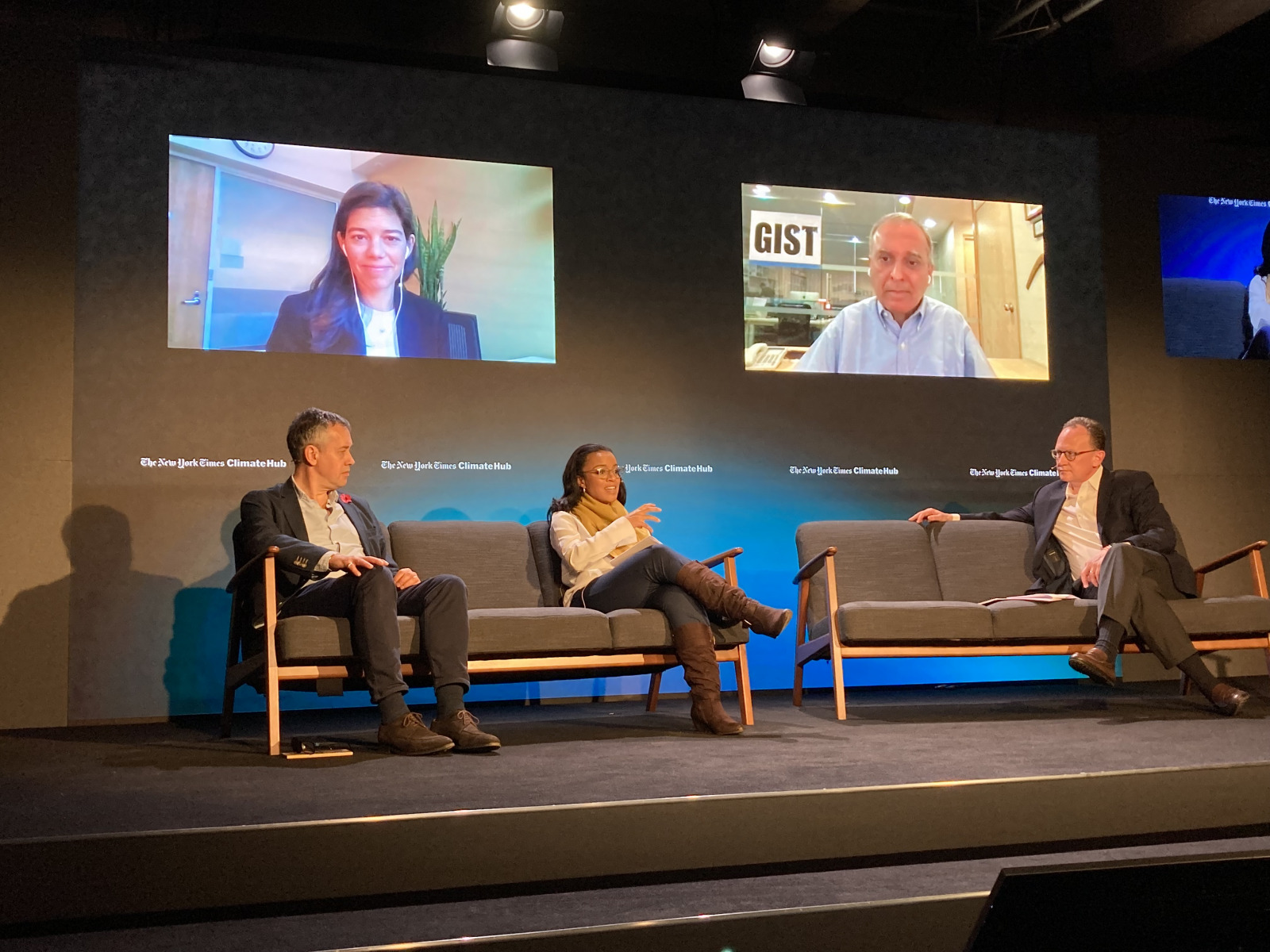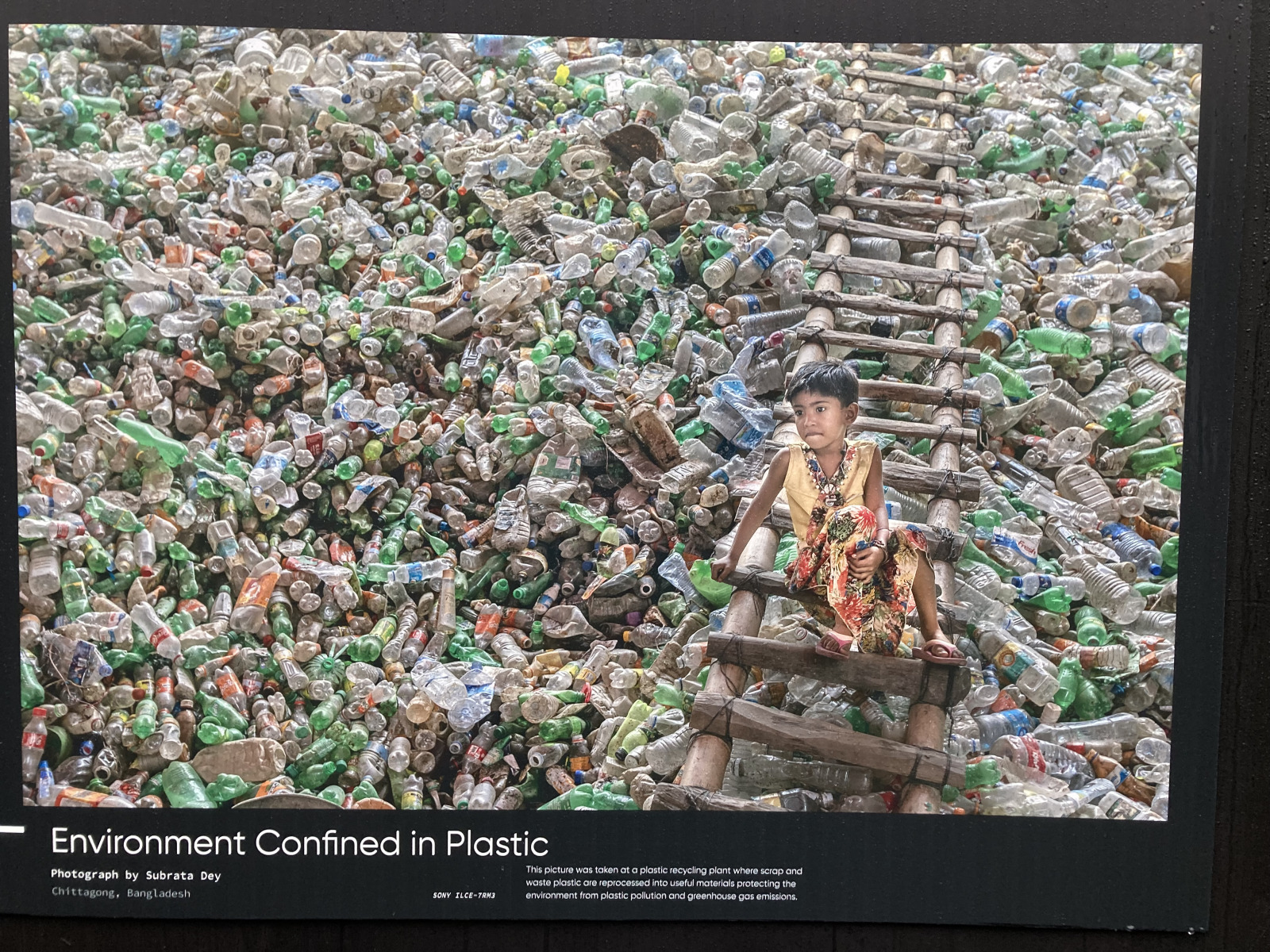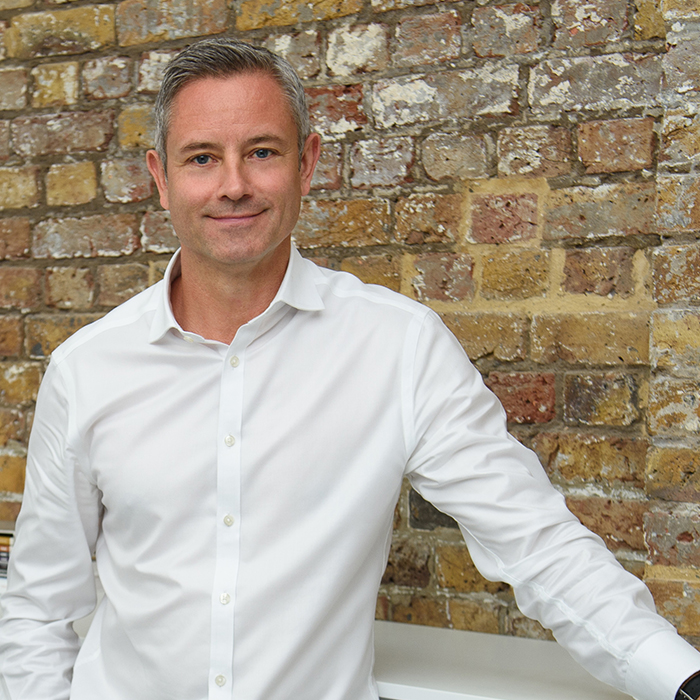Insights
Notes from The New York Times Hub: market forces & the deep blue transition.
Merging the green & blue agendas; incentivising climate innovation.
Ashley Bateson and James Ford headed to Glasgow to attend some exciting panel discussions about climate change and what we can do to limit impacts on the environment. Taking time to meet clients and architects to discuss the challenges and opportunities for net zero, they engaged in healthy debate and took away some valuable insights.

Deep blue transition: merging the green and blue agendas
Oceanic and climate health are both necessary for our global systems to thrive. Many of our sectors and industries — such as offshore oil and gas, marine equipment and fishing — rely heavily on oceans, through methods and activities that directly affect marine ecosystems. What governance, policy and business commitments do we need to merge the green and blue agendas, and ensure a just transition to a sustainable, net zero economy?
The panel – Melati Wijsen (Founder, Bye Bye Plastic Bags and Youthtopia), Isabel Rivera-Collazo (Assistant Professor of Geosciences, University of California, San Diego), and Jeffrey Gettleman (Foreign Correspondent, The New York Times) – spoke about the health of the oceans’ inextricable link to the health of life on the planet. It’s a delicate balance between the ability of the oceans to accommodate climate change, and the risk that warming will eventually trigger tipping points that lead to more extreme weather events and catastrophic damage to ocean ecosystems.
With only 3% of the world’s oceans formally protected, we heard how many social enterprises and charities are working hard to raise awareness of the need to defend the oceans against environmental impacts. Some countries in South America are working together to collaborate on coastal ocean protection too, pooling their resources to increase their efficacy.
Single-use plastics ending up in the oceans is, of course, another problem, with plastics ending up in the food chain and harming sea life. In Indonesia, a social enterprise has been established to make bags from textile off-cuts, creating employment and value from materials that would otherwise be discarded. The income from selling the textile bags is shared between the workers and charity, thus creating long-term benefits and a sustainable alternative to single-use plastic bags.

Market forces: incentivising climate innovation
For the last century, innovation has been seen primarily as the engine of a market capitalist system. It meets consumer needs better and faster so that private businesses can make greater profits. The role of technological innovation in addressing environmental problems like climate change is a more recent phenomenon, where no natural market exists. How can policy and networks ensure the acceleration of climate innovation? What new incentives need to be created?
This is something that has been considered by Climate Hub speakers Laura Diaz Anadon (Professor of Climate Change Policy, University of Cambridge), Mark Campanale (Founder/Executive Chair, Carbon Tracker Initiative), Tariye Gebadegesin (MD/CEO, ARM-Harith Infrastructure Investment), Pavan Sukhdev (Founder/CEO, GIST), and Mark Landler (London Bureau Chief, The New York Times).

The key takeaways? Markets are not currently designed to show the consumer the full impacts of a transaction or investment choice, hence detrimental social and environmental consequences go unnoticed.
Social and environmental impacts should be assessed in investment decisions so that more informed choices can be made. Often called impact accounting, this can be done in parallel with financial accounting.
Innovation doesn’t need to be about technology, it can be about making things simpler or just doing things differently to get a better result.
Setting a higher price for carbon will help market forces appreciate carbon impacts; we are likely to see a meaningful price for carbon by 2030. However, markets operating with a meaningful price for carbon won’t be enough for transformational change; we need to accelerate regulation to decarbonise the economy.
